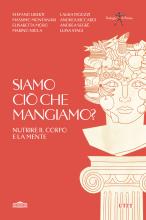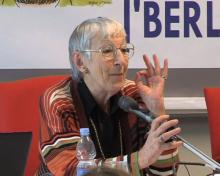Popular culture, mass culture, virtual culture
€ 3.00Studies of “popular” culture, the culture of the “subaltern classes”, as Antonio Gramsci called them, have been dominant in Italian anthropological studies from very beginning, starting from Ernesto De Martino’s research on Southern Italy. Amalia Signorelli, who studied with De Martino, reflects upon the notion of popular culture, differentiating it from the concept of “folklore”, also distancing herself from a certain idea of tradition.
Based on historical references, this topic will be examined in the light of its more contemporary expressions such as TV culture and, more generally, mass culture, culture originating from virtual worlds, and lastly, the culture of “social” media networks. The aim is to understand what popular culture means today, and the role it plays in our society.
Video
Amalia Signorelli (1934) is an anthropologist. She studied with Ernesto De Martino and has taught cultural anthropology in the Universities of Urbino, Naples and Rome, at the E.H.E.S.S. in Paris and at the Universidad Autonoma Metropolitana of Mexico City. She has worked as a consultant for the EEC and the International Labour Organisation on emigration. In her works, translated into several languages, she has studied cultural modernisation processes in Southern Italy, migration and the status of women. Her studies on urban anthropology are considered ground-breaking. She collaborates with the newspaper il Fatto quotidiano and with several television networks as a commentator. Her publications include: Chi può e chi aspetta. Giovani e clientelismo in un’area interna del Mezzogiorno (Liguori, 1983); Migrazioni e incontri etnografici (Sellerio, 2006); Antropologia culturale (McGraw-Hill, 2007); Ernesto De Martino. Teoria antropologica e metodologia della ricerca (L’Asino d’oro, 2015); and La vita al tempo della crisi (Einaudi, 2016).
Amalia Signorelli & i Dialoghi
2017
Il programma sarà disponibile a breve...
Il programma sarà disponibile a breve...



